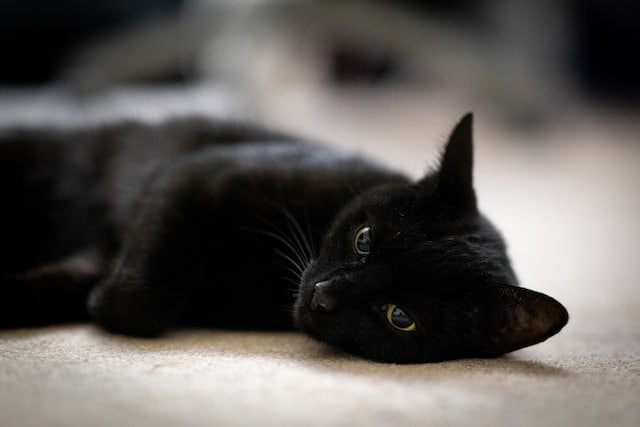
Table of Contents
Do you have a lucky charm? Do you avoid walking under ladders? Do you knock on wood? Do you cross your fingers? If so, you’re not alone! Many people around the world believe in strange bad luck superstitions.
But why do we believe in them? Where do they come from? And why do we still believe in them today?
Superstitions are a part of every culture. People have them because they want to believe that they can control their own destinies. An old yet effective study from 2010 reveals that superstitions can sometimes function as self-fulfilling prophecies. When people believe in good luck charms, for example, they may actually become luckier because they expect to be.
In this blog post, we will explore the origins of some of the most common bad luck superstitions and try to explain why we believe in them.
If you visit Sweden, you’ll find most people don’t put keys on the table.
Why, you may ask? That’s because back in the medieval age, prostitutes used to attract clients in public areas by putting the keys on the tables. The keys symbolized their availability. Nowadays, people still don’t put keys on the table as a sign of respect. If you do put your keys on the table, some Swedes may give you a disapproving look.
In traditional Rwandan societies, women avoid goat meat.
The reason for this is that goats are considered to be sexual symbols. Therefore, eating goat meat is believed to make women more promiscuous. On the other hand, one bizarre superstition about women eating goat meat is that they believe women can grow a beard after eating it, just like a goat.
Don’t flip over a cooked fish in China.

It’s considered bad luck because it symbolizes a boat capsizing. This superstition likely came about because of the many fishermen who died at sea. That’s the reason why many Chinese households use chopsticks to serve fish, so they don’t have to flip it over.
Getting married on a Tuesday is bad luck in Latin American culture.
There’s the famous quote: “En martes, ni te cases ni te embarques ni de tu casa te apartes”,” which means that one shouldn’t get wedded, travel, or depart from home on Tuesdays.
The reason for this is that Tuesday is the day of the week dedicated to Mars, the God of War. Therefore, getting married on a Tuesday is believed to bring discord and arguments into the marriage.
The bad fortune of Tuesdays is indeed prominent in various Latin American traditions, to the extent where the film Friday the 13th was renamed Martes 13, or Tuesday the 13th, in some South American nations.
Hold your beer! Because mixing beers in the Czech Republic is bad luck.
Czechs believe that if you mix different types of beer, it will result in a fight. This superstition likely started because people would get into arguments after drinking too much alcohol. Being the world’s leading beer-consuming nation, the Czech Republic takes its beer seriously. So, don’t be surprised if a Czech gives you a strange look if you ask to mix your beers.
A black cat crossing your path should be avoided.

Given the fact that there are over 81 million pet cats in the United States, why are black cats still associated with bad luck?
The superstition likely started in the Middle Ages when people believed that black cats were associated with witchcraft. If a black cat crossed your path, it was believed that you would be cursed or hexed. This superstition is still prevalent in many cultures today. In fact, black cats are often avoided by people who believe in bad luck superstitions.
In Greece, people consider Tuesday the 13th to be the unluckiest day.
You may know that Americans are typically superstitious about Friday the 13th. However, the Greeks are a bit frightened of Tuesdays, especially if it’s Tuesday the 13th.
The origins of this belief date back to April 13th, 1204, AD, which was a Tuesday (as per the Julian Calendar), when the Crusaders conquered Constantinople.
However, the date wasn’t the only unlucky Tuesday for Greece. Constantinople was yet again conquered by the Ottomans on May 29, 1453, AD, again another Tuesday. According to a travel writer from the 19th century, Greeks even prefer to skip shaving on Tuesdays.
Bad luck comes in threes.

There is a general notion that terrible misfortune arrives in sets of three. This is interesting because in some cultures, the number three is considered good luck. We also have the phrase third time lucky or three times the charm. So why does bad luck come in threes?
The origin of this superstition is murky. Psychologists say that it’s probably because humans crave certainty, and by putting a limit to uncontrollable events, we feel comforted and secure that these bad events will end soon.
‘666’ is a number to be avoided.
Many folks get shivers when they see triple sixes in succession. The fear of this number stems from the Bible. In the biblical text, the figure 666 is presented as the number of the “beast,” and it is frequently regarded as the devil’s emblem and a foreshadowing of the coming apocalypse.
Scholars speculate that the number 666 is actually a hidden reference to Nero Caesar, so that the author of the Book of Revelation could speak against the emperor without repercussions. In Hebrew, each letter has a numerological value, and the numerological equivalent of Nero Caesar is 666. Be that as it may, today we view this number as the devil himself.
You’re inviting a beating in Russia if you wear your clothes inside out.
If you’ve accidentally worn your clothes the wrong way, i.e., inside out, you will get beaten. Quickly put the clothing on the right way and allow a buddy to slap you to reduce any harm of bad luck that may come to you. The slap doesn’t have to be hard – it can just be symbolic.
Don’t drink water reflecting moonlight.
In Turkey, it’s bad luck to drink water that reflects moonlight. Apparently, doing so will bring bad luck to your life. However, showering in such water is considered good luck. They believe that “the few who bathe underneath the moonlight and also in twilight will glow as brilliant as the lunar surface.”
Cutting the nails of an infant aged less than six months is considered bad luck in the Welsh tradition.
Many variants of this myth caution against bad fortune. The belief is that a child whose fingernails are cut just before the age of 6 months would turn into a robber. So rather than trimming fingernails, the parent must “bite them off when they develop,”.
Cutting nails after dark is considered unlucky in Asian countries like India.
The reason for this is that it is believed that demons or evil spirits can enter your body through your nails. This superstition likely started because people would cut their nails at night using candles or lanterns, which cast a shadow on their hands. As a result, people would believe that demons were entering their bodies through their nails. Some historians believe that this superstition was crafted in the early years just to keep people from using sharp objects at night.
Breaking your mirror brings bad luck.

Breaking or smashing a mirror is a definite method of giving oneself seven years of ill misfortune. The belief appears to stem from the concept that reflectors do more than just replicate your appearance; they also retain pieces of the personality. Folks in the American South used to hide reflectors in their homes after somebody deceased, fearing their spirit would be imprisoned within.
Figure 7, much like number 3, is frequently connected with fortune. Seven years is an eternity to be unfortunate, which could explain why individuals devised ways to liberate themselves after smashing a mirror. Two examples are putting a fragment of the shattered mirror on a gravestone or crushing the mirror fragments into dust.
Never walk under a ladder.
To be honest, this superstition is reasonably practical. Who wants to be the one who trips and knocks a carpenter off his perch? According to some experts, this prejudice sprung out of a Christian belief that a ladder against a wall formed the shape of a cross. So, walking under it would be tantamount to trampling on Jesus’ grave.
But there are other theories about the origins of this superstition. One suggests that it has to do with early gallows designs—the triangle shape of a noose being similar to that of a ladder propped up against a wall. So, if you’re ever feeling tempted to jaywalk under an A-frame ladder, maybe think twice!
Female visitor on New Year’s Day is bad luck according to old Pennsylvania German superstition.
According to an early twentieth Pennsylvania German legend, if the first guest on New Year’s Day happens to be a woman, you will just have a poor fortune for the remainder of the year.
If your guest is a male, you’ll be in luck. Taking a shower or changing your clothes during Christmas and New Year are also deemed unlucky.
Opening an umbrella indoors? Unfortunately, that’s bad fortune too.
Tales exist, ranging from an old Roman widow who unfurled her umbrella right before her husband’s funeral procession to a young Victorian woman who accidentally stabbed her beau in the eye with her umbrella while opening it indoors, of why it’s considered bad luck to open an umbrella inside.
The most likely explanation, however, is much more practical and less dramatic. Unexpected gusts of wind could easily cause an indoor umbrella to take flight, potentially injuring someone or breaking something valuable. For this reason, many believe it’s best to leave umbrellas by the door until you absolutely need them.
In Italy, people avoid keeping bread upside down.
It is thought to be unlucky in Italy to place bread upside-down, whether on a basket or on a table. Despite the existence of various theories, the most accepted belief is that the loaf of bread symbolizes Christ’s flesh and, as such, should be handled with reverence.
Wrapping Up
Hopefully, this list of the most common and some “never-heard-of” bad luck superstitions will give you insight into what notions the world thinks to carry misfortune. Some may find these superstitions to be believable, while others may find a few to be a matter of laughter. It’s up to you what you draw out of these superstitions.








